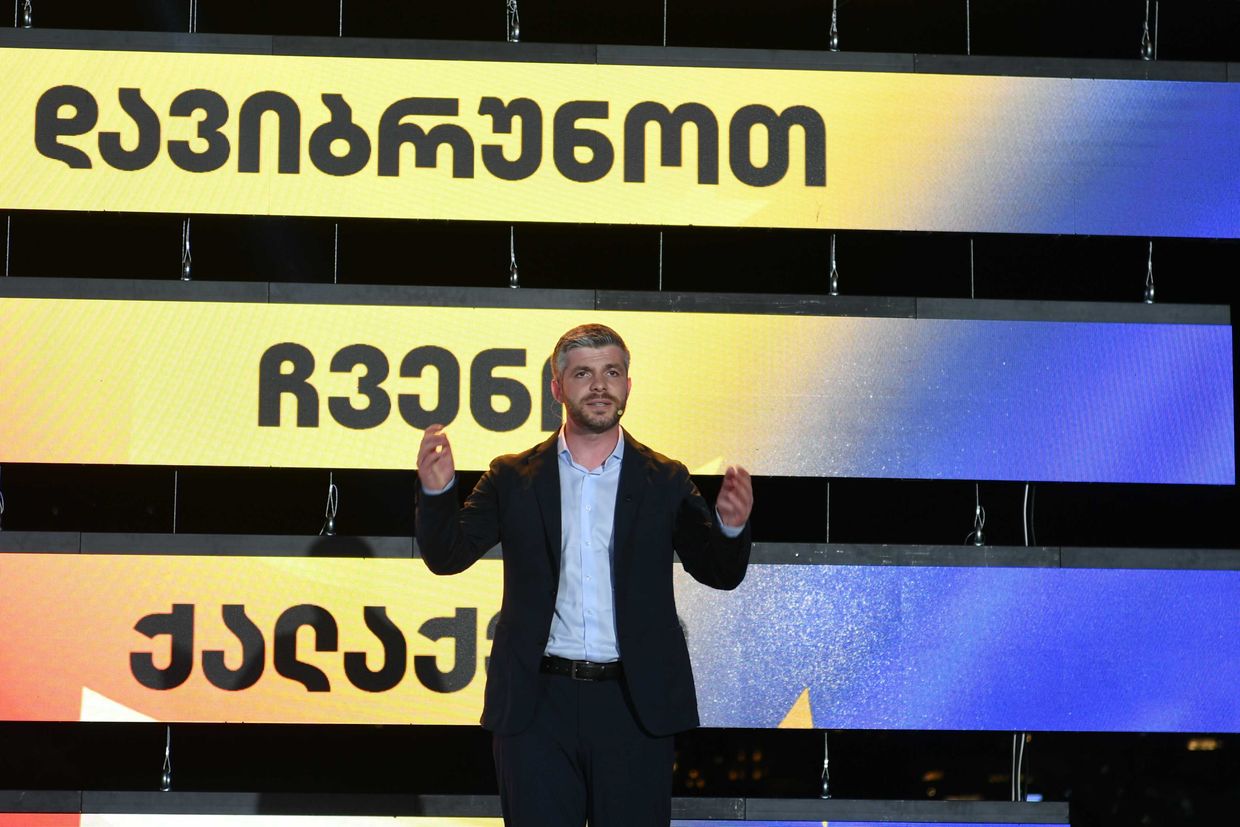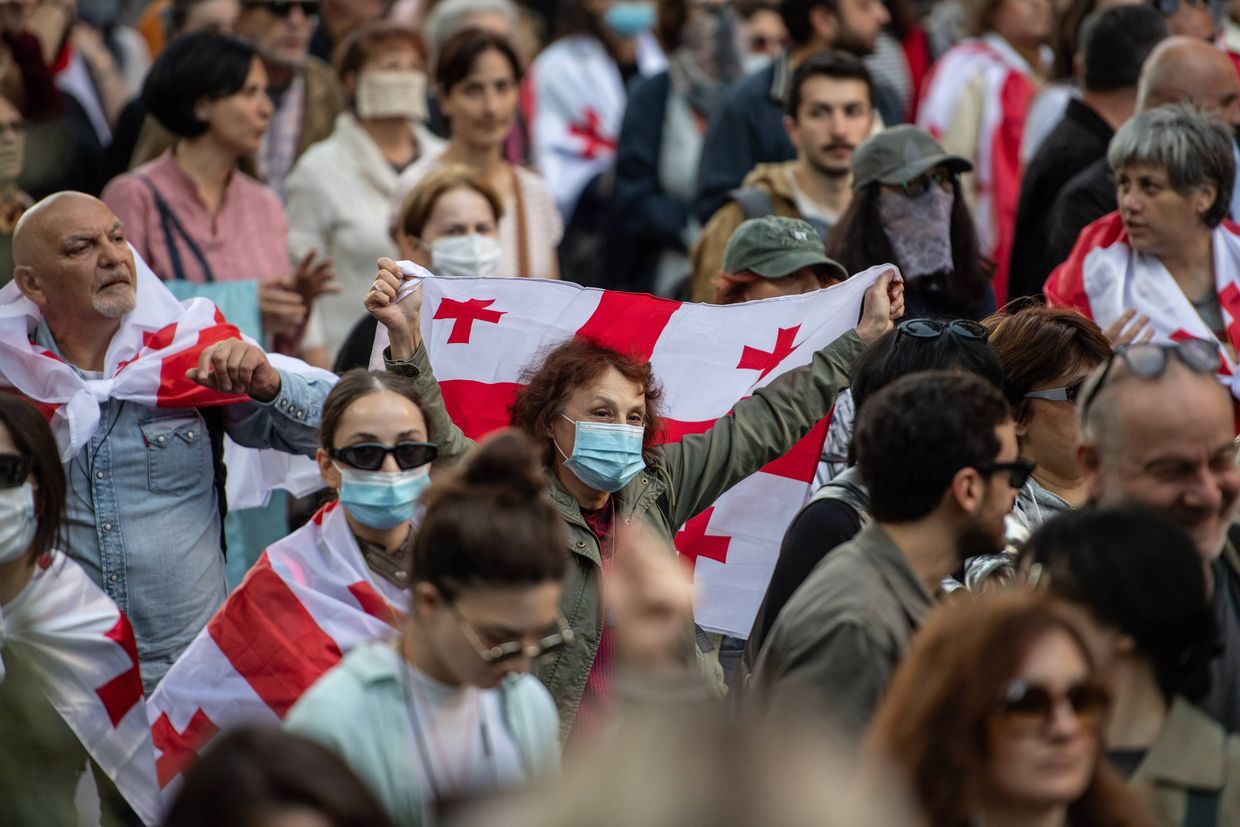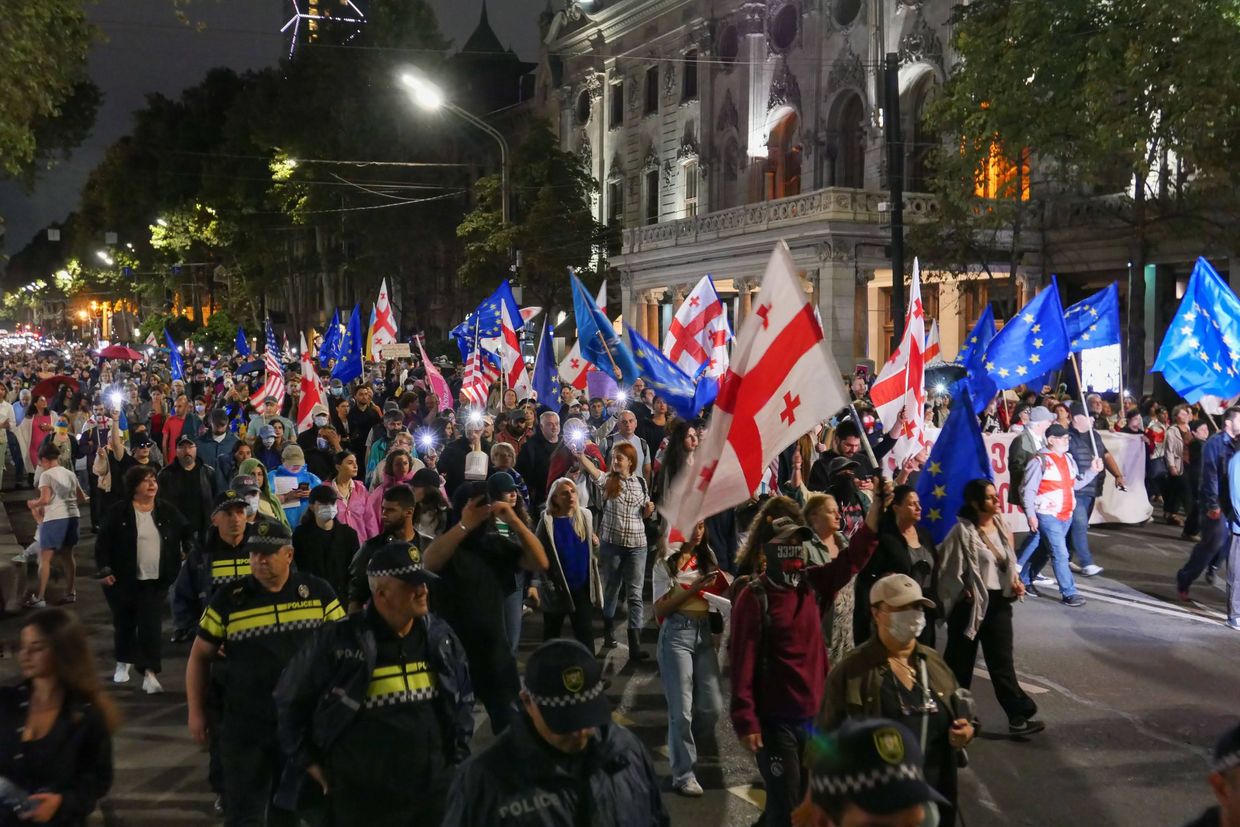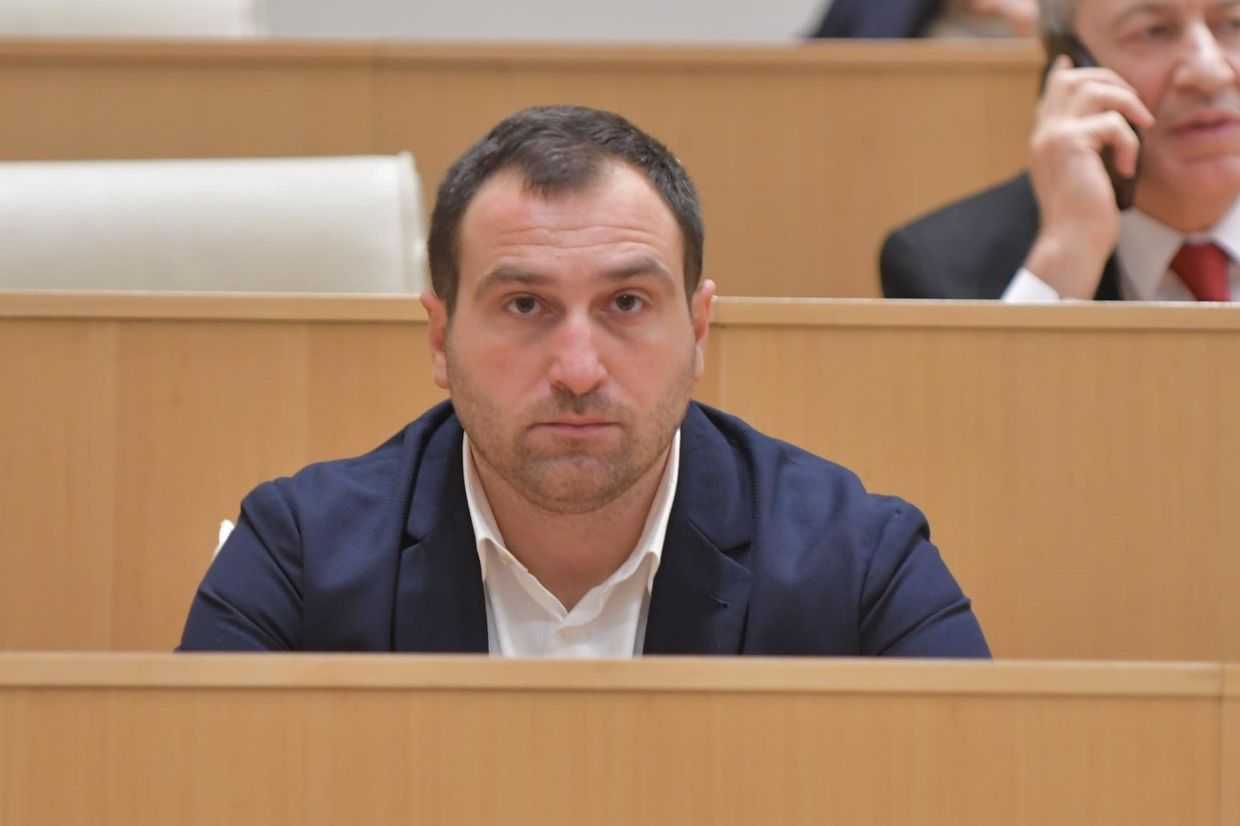Reversing decision, former Prime Minister Gakharia’s party ends boycott of Georgian Parliament

For Georgia, the opposition party led by former Prime Minister, Giorgi Gakharia, has decided to end its boycott of parliament and take their 12 seats. For Georgia cited growing authoritarianism and the absence of dissenting voices in parliament as the reason for the decision.
At a Monday briefing, one of the party’s leaders, Giorgi Sharashidze, said that the boycott, as a form of political protest, had failed to stop the ruling Georgian Dream party’s ‘machine of evil’ and had not prevented decisions such as the government’s EU U-turn, the adoption of anti-democratic laws and violence, among other ‘criminal and anti-national actions’.
‘The boycott of parliament, which evolved into a boycott of the entire political process, effectively erased the opposition from the political arena’, Sharashidze added.
Commenting on a decision, Gakharia posted on social media that the boycott ‘emptied the political arena, leaving Georgian citizens defenseless before the Georgian Dream regime’s propaganda and repression, strengthening its authoritarian rule and deepening radicalisation’.
In his words, For Georgia will assume its mandates both in parliament and local municipality councils across the country to ‘reclaim political space and fight for public opinion’.
All major opposition groups refused to enter parliament following the disputed October 2024 parliamentary elections, which allowed Georgian Dream to remain in power.

At the same time, every opposition group that had crossed the electoral threshold applied to the Central Election Commission (CEC) to have their parliamentary mandates revoked. However, For Georgia did not do so, leaving open the theoretical possibility of later entering parliament.
With the official results of the disputed 2024 elections, 89 MPs from Georgian Dream and its small satellite groups gained parliamentary mandates, along with 61 deputies from opposition parties, including 12 from Gakharia’s party.
In July, Georgian Dream suspended the mandates of 12 MPs from Gakharia’s party, including Gakharia himself, due to their prolonged absence from parliamentary sessions. However, following the end of the boycott, the party’s 12 other representatives will be able to take their seats.
For Georgia’s U-turn with opposition already divided
Despite their initial unity on the issue of the parliament boycott, opposition parties have struggled to maintain cohesion in the subsequent period, with open clashes among them over various issues.
After the parliamentary boycott, part of the opposition also decided to boycott the 4 October 2025 municipal elections, saying that participating would have meant recognising the disputed legitimacy of Georgian Dream’s rule.
That view was opposed by For Georgia and another opposition group, Lelo — Strong Georgia, who participated in the municipal elections with joint candidates, explaining that they wanted to fight the ruling party on every front.

The dispute further fragmented Georgian opposition.
Despite participating in the municipal elections, For Georgia had never publicly confirmed its decision to end the parliamentary boycott until Monday. However, Gakharia said in a September interview that not using their parliamentary mandates had been a mistake.
‘We will no longer remain prisoners of our own mistakes, nor live in illusions and self-deception’, Sharashidze stated during the briefing.
In his words, the situation in the country was worsened by ‘the irresponsible and provocative events of 4 October’, as he again criticised a rally organised by some election-boycotting opposition figures on the day of the municipal vote.
The aim of the rally was the ‘peaceful overthrow’ of Georgian Dream. However, an attempt failed and was followed with clashes and detentions after a small group of demonstrators, responding to a call from one of the organisers, tried to storm the Presidential Palace.

On the same day, Georgian Dream declared a landslide victory, winning mayoral races in every municipality and the majority of city council seats.
According to Sharashidze, the 4 October events ‘severely damaged an already weakened opposition spectrum and gave Georgian Dream an excuse to justify further intensification of authoritarianism among its supporters’.
‘Our main goal is to fight to preserve dissenting voices. There is another truth in this country and we must bring that truth into the open’, he said.
In his words, a year ago they had unsuccessfully tried to convince their opposition colleagues that revoking their parliamentary lists was a mistake, one that had eliminated their chances of entering parliament later.
Gakharia abroad amid potential opposition ban
As For Georgia enters parliament, its leader Gakharia — who served as Georgian Dream’s Interior Minister from 2017 to 2019 and as Prime Minister until his resignation in 2021 — is currently abroad.
He reportedly left for the EU in June, with his party citing meetings with representatives of Georgia’s traditional partner states on Georgia’s ongoing political developments, as well as efforts to secure For Georgia’s membership in the Party of European Socialists (PES)
In a September interview with TV Pirveli, Gakharia said he had no plans to return to the country in the near future and that he has received a residence permit in Germany.
There has been speculation that Gakharia may be staying abroad to avoid possible prosecution, as the Prosecutor General’s Office is investigating his tenure as Interior Minister under serious criminal charges.
Gakharia said he did not believe the Georgian Dream-led government had the resources to arrest him, but suggested that upon his return, his political activities could be restricted.
While the For Georgia leader remains abroad, many Georgian opposition leaders are imprisoned on various charges, including for boycotting the anti-opposition parliamentary commission established by Georgian Dream. Unlike other opposition figures, Gakharia did appear before the commission — once in person and later online, after leaving the country.
The ruling party, which repeatedly accused major opposition parties of ‘anti-state’ activities, has openly announced plans to file a constitutional lawsuit seeking their ban.
In the past, Georgian Dream has also listed Gakharia’s party among the targeted groups. It remains unclear whether the party’s entry into parliament will alter the ruling party’s stance toward it.











